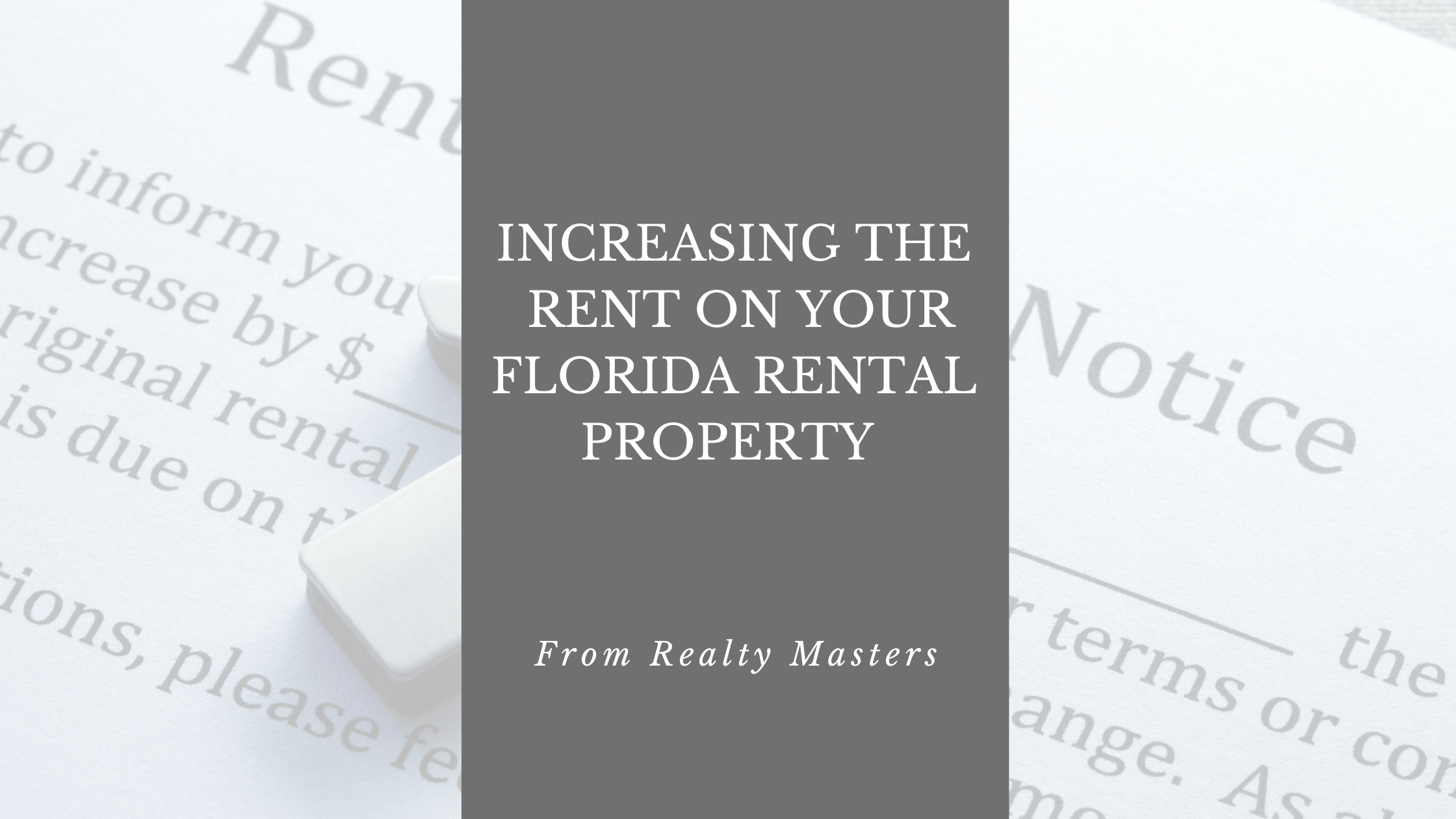We get a lot of questions on rent increases and rent control laws from out of state investors looking to invest in Pensacola rental properties. We’re here with some commonly asked questions from landlords about this issue.
Does Florida have rent control measures? Many states do have rent control measures in place. Currently, the state of Florida does not have any rent control measures in place. In fact, Florida passed a law in 1977 that forbid municipalities from enacting rent control measures unless in extreme circumstances.
What is rent control? Rent control laws dictate how and when rent increases can be made. This has become an increasingly popular topic for legislators as rising rents, home prices, and inflation have increased housing expenses drastically since 2020.
How do I increase my Florida tenants' rent? The time to make any rent changes is after the expiration of the tenants lease agreement as you are not able to increase the rent during an active lease. Upon expiration, you should send the tenants notice of terms for an upcoming expiration. Florida law requires this is done in writing via a physical letter to the property or other known address. You can supplement this notice with text, phone call, or email but these methods should be in addition to a letter sent. This must be done 15 days in advance to the new lease term and the letter must contain a date the new lease amount will take place. Be careful as different municipalities can have different notice requirements. For example, Miami Dade requires a 60 day notice prior to the end of the lease to change rent.
How do you handle rent increase notifications? We send a lease renewal offer in writing via the postal service 45-60 days prior to the expiration of the lease so that either party may give adequate notice to vacate. This outlines the new rate, the term of lease offered, and the date the changes begin. You can advise the tenants of the lease changes earlier if you’d like. If the tenants do not agree to the rent increase, you may have issues that could have been avoided had you worked this out in advance. If your lease does not dictate what happens if a new lease is not signed, you’ll be confused on how to proceed if your tenants do not accept the rent changes. Once all terms are agreed upon, we send out a new lease or a month-to-month addendum for all parties to sign in advance of the previous expiration.
What if my tenants are month to month? If your tenants are not on a current lease, you can give a notice of rent increase at any time. You should give at least 15 days notice prior to the end of the next rental payment, however, we recommend 45 days prior to the change in rental amount to be fair to your tenants. We find that month to month tenants are more likely to be under market rent. This is one of the many reasons we recommend keeping tenants on an active lease so rent can be routinely evaluated.
What if my tenant does not accept the rental increase? This is why it’s best to give sufficient notice for a change in the rental rate. Read your lease to see if it dictates how to proceed in this situation. You have a few options if not:
- Issue the tenant a formal notice to terminate the lease under Florida Landlord Tenant law. This is also commonly called a notice to vacate. Be sure you post the notice or mail it within the timeframes specified in Florida Landlord Tenant Law.
- Try to negotiate with the tenants on a rate you are both satisfied with.
- Allow the tenant some time on a month-to-month lease to find a new place at an agreed upon rate (unless your lease has an automatic provision for this as ours does). Negotiate and agree to this in writing.
Are there any other rent increase considerations I should be aware of? Yes! Do you have good tenants who are taking care of the property and paying rent timely? This is a huge consideration when deciding if you should increase the rent on your property and at what rate you should increase the rent. Also, we always recommend conducting a market analysis when considering the rental rate for a renewal lease. This will give you a good idea of what you could rent the property out for today and will help you make an educated offer to the current tenants. If market rent is below your current rate, you may even consider negotiating the rent to keep the tenant in place. Do remember that rent increases can not be made as an act of retaliation under Florida statutes. If your sole purpose for a rent increase is that the tenant asks for maintenance to be done or had a child, you could be subject to Fair Housing or Florida Landlord Tenant Law violations. Of course, I’m not an attorney so if you have specific legal questions, consult a Florida attorney today!
With increasing expenses including Florida insurance, maintenance expenses, and property taxes in recent years, you may find yourself evaluating the profitability of your rental property. We know it’s been a tough market on tenants and landlords, and we’re here to help. If you’re a Pensacola landlord with questions about rent increases or Pensacola property management, reach out to our team today.
Want to read more? Check out this map from the Multifamily Housing Council with a nationwide map with rent control laws. https://www.nmhc.org/research-insight/analysis-and-guidance/rent-control-laws-by-state/


